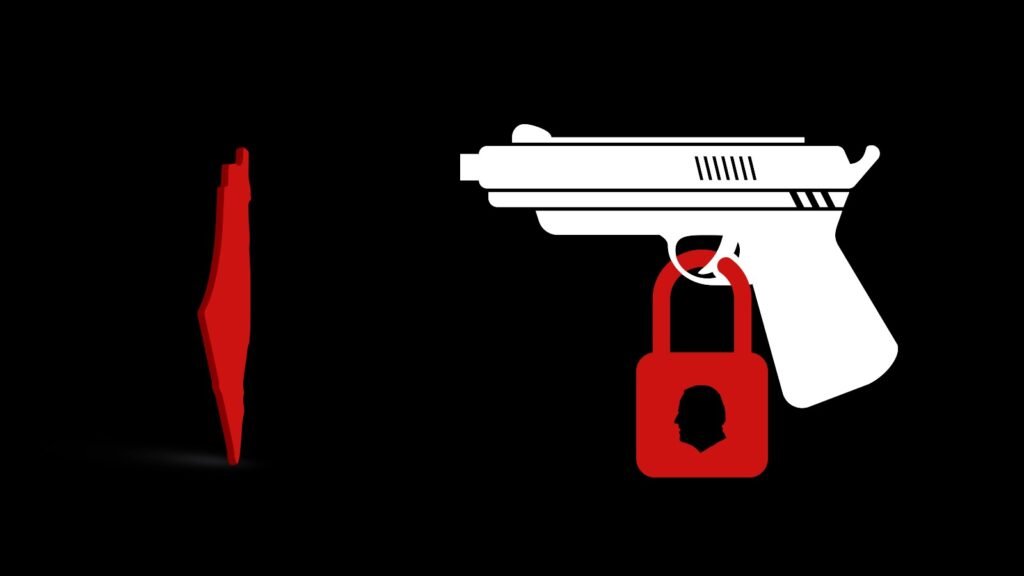The US president appears optimistic amid reports that Hamas is contemplating a proposed 40-day ceasefire, potentially involving the exchange of Palestinian prisoners for Israeli hostages.
Joe Biden has expressed optimism, stating his belief in the possibility of a new temporary ceasefire in Gaza by next Monday. This comes as Hamas reportedly considers a draft agreement for a 40-day pause in fighting and the exchange of Israeli hostages for Palestinian prisoners, according to a source cited by Reuters.
Biden conveyed during a visit to New York, following a taping for NBC’s Late Night with Seth Meyers, “My national security adviser tells me that we’re close. We’re close. We’re not done yet. My hope is by next Monday, we’ll have a ceasefire.”
In the Meyers interview, Biden also mentioned that Israel would be open to temporarily pausing its military operations during the upcoming Muslim fasting month of Ramadan if a deal is reached to secure the release of some of the hostages. “Ramadan’s coming up and there has been an agreement by the Israelis that they would not engage in activities during Ramadan as well, in order to give us time to get all the hostages out,” Biden explained.
Hours before his appearance, details of a draft proposal from truce talks in Paris surfaced, as reported by Reuters, citing a senior source close to the discussions. The proposed plans included a 40-day cessation of all military operations, along with the exchange of Palestinian prisoners for Israeli hostages at a ratio of 10 to one.
As per the ceasefire terms, efforts would be made to repair hospitals and bakeries in Gaza, with 500 aid trucks entering the strip daily. Additionally, thousands of tents and caravans would be provided to accommodate the displaced, according to the Reuters source.
The draft proposal reportedly outlined that Hamas would release 40 Israeli hostages, including women, children under 19, individuals over 50, and the sick, while Israel would release approximately 400 Palestinian prisoners without re-arresting them, according to the source.
The proposed agreement would also facilitate the gradual return of displaced civilians to northern Gaza, excluding men of military age.
Israel’s war cabinet over the weekend endorsed the general terms of a ceasefire deal to halt hostilities for several weeks in exchange for the release of hostages held in Gaza. Egypt, Qatar, the United States, France, and others have been engaged in negotiations as intermediaries between Israel and Hamas in a concerted effort to broker a truce.
Reports from media outlets suggest that a potential agreement could involve the release of several hundred Palestinian detainees held by Israel, as per Agence France-Presse.
Qatar’s Emir, Sheikh Tamim bin Hamad Al-Thani, whose country hosts Hamas leaders and played a role in brokering a one-week truce in November, is expected to visit Paris this week, as announced by the French presidency.
A temporary halt to hostilities lasting several weeks could facilitate the delivery of aid to Gaza, where nearly 30,000 casualties have been reported by the Hamas-run health ministry, and where disease and hunger have affected much of the population.
Last week, the United Nations food agency suspended aid to northern Gaza, citing Israeli gunfire and “complete chaos and violence due to the collapse of civil order,” amid growing reports of famine.
The UN has reported a significant decrease in the amount of aid reaching Gaza in February compared to January, with the secretary-general, António Guterres, cautioning that an Israeli assault on Rafah would severely impede deliveries to the territory, potentially dealing a devastating blow to humanitarian efforts.
US officials are hopeful that a temporary ceasefire lasting several weeks could provide a pathway to resolving the conflict. However, Israeli Prime Minister Benjamin Netanyahu has emphasized that any truce agreement would merely delay, rather than prevent, a potential ground invasion of Rafah in the southern Gaza Strip.
“I’ve outlined three objectives for this war. The first is to secure the release of the hostages. The second is to dismantle Hamas. And the third is to ensure that Gaza no longer poses a threat to Israel in the future,” Netanyahu stated during an appearance on CBS’s Face the Nation. “It’s important to understand that unless we achieve complete victory, peace cannot be attained. We cannot leave Hamas in power.”
Netanyahu’s office announced on Monday that the military has presented Israel’s war cabinet with a plan for evacuating civilians from Rafah. However, no specific details have been disclosed regarding the relocation of displaced individuals.
Meanwhile, Netanyahu has been facing mounting public pressure regarding the fate of hostages still held in Gaza, amidst a growing resurgence of anti-government protests.
In Israel, municipal elections, postponed twice due to the ongoing conflict, are scheduled for Tuesday. These elections could provide insight into the public sentiment nearly five months into Israel’s ongoing war against Hamas.
The offensive in Gaza was triggered by a Hamas attack on October 7th in Israel, resulting in approximately 1,200 casualties and the taking of over 200 hostages. Around 100 hostages were released in exchange for a temporary ceasefire as part of an earlier agreement. Israeli authorities estimate that approximately 130 hostages remain in Gaza.
Biden’s remarks regarding the ceasefire came shortly after an active-duty member of the US Air Force tragically died by setting himself on fire outside the Israeli embassy in Washington, DC, as a protest against the war in Gaza.
The situation has become politically complex for the US president, particularly as he competes for votes in the US presidential primary elections. Ahead of the primary election in Michigan, activists have urged Democrats to indicate “uncommitted” on their ballots rather than supporting Biden, in an effort to pressure the president to advocate for a permanent ceasefire.


